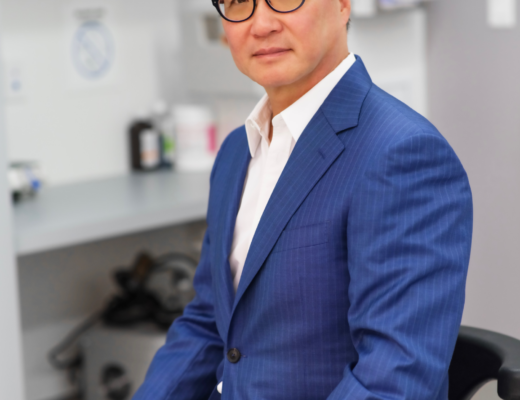The future of healthcare is shifting—from reactive to predictive. At the forefront of this change is Dr. Severence MacLaughlin, the founder of DeLorean AI, a company using artificial intelligence (AI) to forecast chronic diseases and guide smarter clinical decisions. Built on personal passion and professional rigor, DeLorean AI proves that technology can do more than treat disease; it can help prevent it.
From Farm Life to Future-Driven Leadership
Dr. MacLaughlin’s story begins far from Silicon Valley. Raised on a sheep and cattle farm in rural Rhode Island, he learned early on that hard work and education could open doors. “The most academically accomplished person I knew growing up was the local veterinarian,” he recalls.
Dr. MacLaughlin’s path took him from Bishop Hendricken High School to Cornell University, then to graduate work and a Ph.D. in Australia. During those years of handling massive data sets, a new idea emerged: “I realized the power of data and that if companies, doctors, and governments used AI, the results would be exponential.”
That realization would eventually lead him away from corporate consulting and into creating DeLorean AI.
What DeLorean AI Does—and Why It Matters
At its core, DeLorean AI is about seeing the future before it happens and acting to change it. “Simply, DeLorean AI predicts events in the future, gives the ability to make choices to alter the events for good, and the system of intelligence learns,” explains Dr. MacLaughlin.
The platform focuses on five key disease areas: cardiovascular disease, chronic kidney disease, diabetes, COPD, and depression. It performs five primary functions: real-time patient risk assessment, prediction of future health events like heart attacks, suggested next-best clinical actions, tracking disease progression from one state to another, and identifying undiagnosed patients.
“Our large language model is the only one medically curated,” Dr. MacLaughlin adds.
Turning Data Into Decisions—and Lives Saved
One of the significant lessons Dr. MacLaughlin learned is that timing is everything.
“Leaders need the right data at the right time in an easily digestible format to make the best possible decisions,” he insists. “If you provide that, adoption is easy. If you don’t, even the best technology won’t stick.”
DeLorean AI is already seeing real-world success. In hospitals using the system, adverse outcomes have dropped by over 27% in the first 90 days. When physicians follow DeLorean’s recommended actions, almost 100% of patients avoid hospitalization.
“If the technology exists to predict chronic disease, we have a moral obligation to use it,” explains Dr. MacLaughlin. “This isn’t just about preventing hospitalization; it’s about giving people more birthdays, more holidays, more time.”
A New Era for Predictive Medicine
Backed by seven patents and insights from over 80 million patient records, DeLorean AI is only getting started. Dr. MacLaughlin envisions a world where predictive health becomes standard care, not a bonus: “Our AI can extend lives and prevent death, basically giving more hugs for loved ones for a longer period.”
Looking ahead, he believes AI will drive major transformation across industries, similar to the early days of the internet. “Adoption of AI now is not a choice,” Dr. MacLaughlin confirms. “It is an evolutionary event.”
In a healthcare system often focused on treating problems after they happen, DeLorean AI offers something different, something profoundly hopeful: the ability to change the course of human health before it’s too late.








